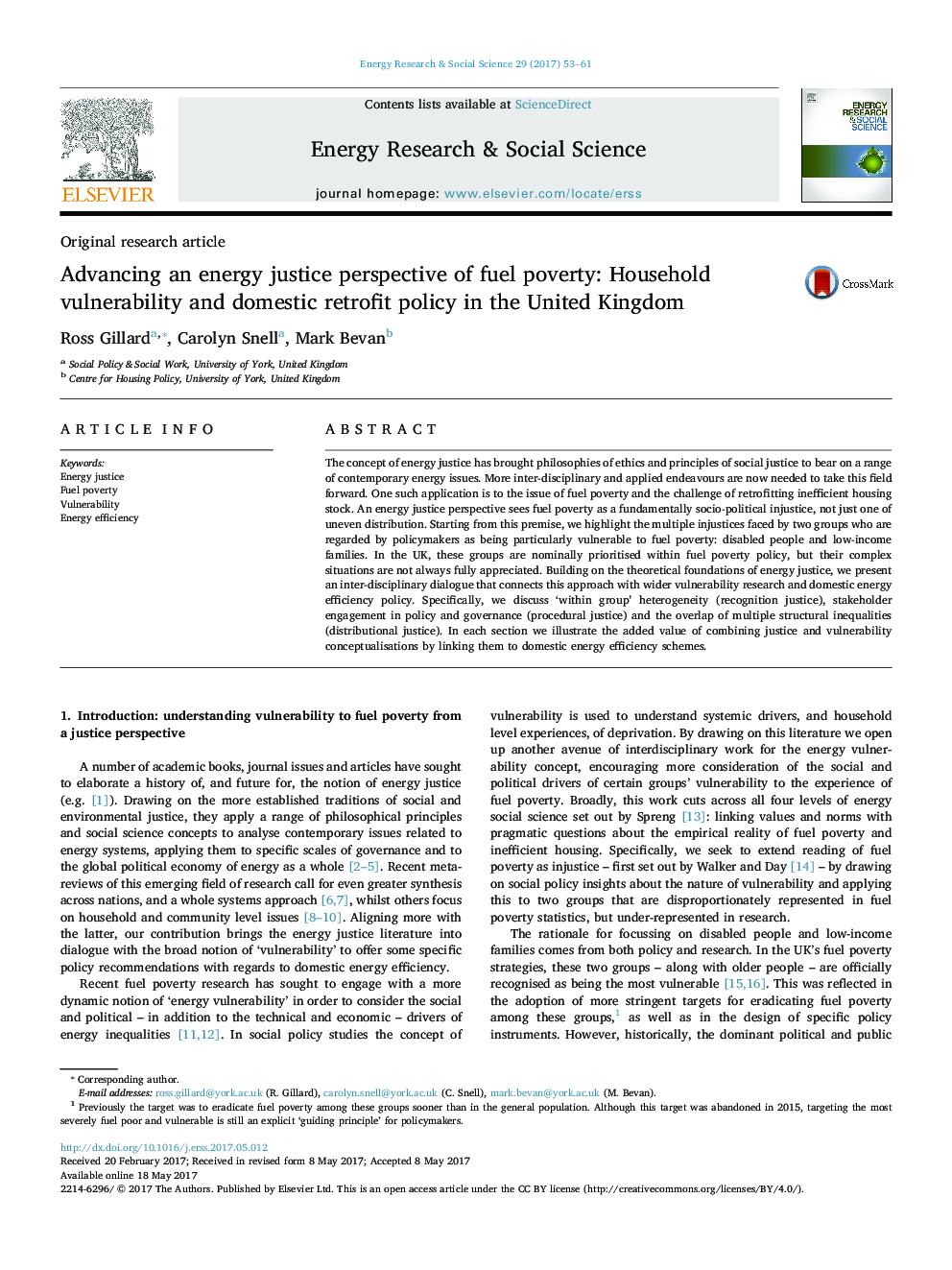| کد مقاله | کد نشریه | سال انتشار | مقاله انگلیسی | نسخه تمام متن |
|---|---|---|---|---|
| 6463945 | 1422572 | 2017 | 9 صفحه PDF | دانلود رایگان |
The concept of energy justice has brought philosophies of ethics and principles of social justice to bear on a range of contemporary energy issues. More inter-disciplinary and applied endeavours are now needed to take this field forward. One such application is to the issue of fuel poverty and the challenge of retrofitting inefficient housing stock. An energy justice perspective sees fuel poverty as a fundamentally socio-political injustice, not just one of uneven distribution. Starting from this premise, we highlight the multiple injustices faced by two groups who are regarded by policymakers as being particularly vulnerable to fuel poverty: disabled people and low-income families. In the UK, these groups are nominally prioritised within fuel poverty policy, but their complex situations are not always fully appreciated. Building on the theoretical foundations of energy justice, we present an inter-disciplinary dialogue that connects this approach with wider vulnerability research and domestic energy efficiency policy. Specifically, we discuss 'within group' heterogeneity (recognition justice), stakeholder engagement in policy and governance (procedural justice) and the overlap of multiple structural inequalities (distributional justice). In each section we illustrate the added value of combining justice and vulnerability conceptualisations by linking them to domestic energy efficiency schemes.
Journal: Energy Research & Social Science - Volume 29, July 2017, Pages 53-61
